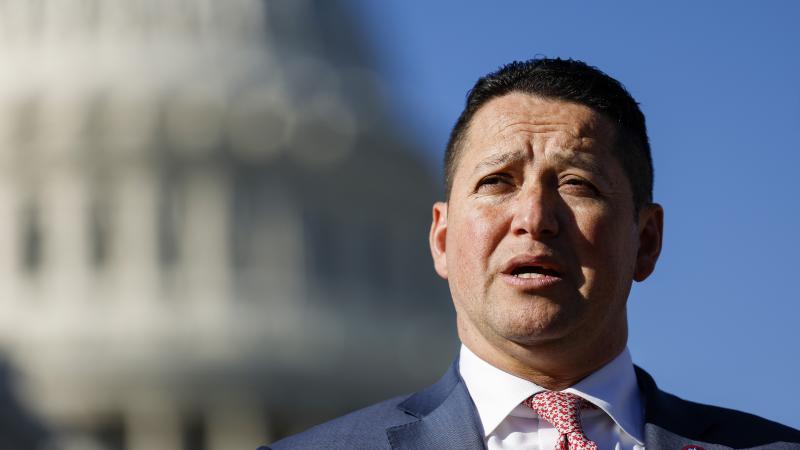More than 500 election fraud cases pending in Texas courts, attorney general says
Ken Paxton releases statistics ahead of special legislative session on election reform set to start July 8.
Ahead of special legislative session set to start July 8, during which Gov. Greg Abbott has made election reform a legislative priority, Attorney General Ken Paxton announced there are more than 500 election fraud cases pending in Texas courts.
“We will prosecute voter fraud every time we find it,” Paxton said. “Currently, our office has over 500 cases waiting to be heard in court.”
“Voter fraud is real,” he said, and “Texans deserve to know their vote is legally and securely counted.”
His announcement was made after the latest individual was arrested on a voter fraud charge on June 23. Monica Mendez was arrested and booked into the Victoria County Jail after a Victoria County grand jury returned an indictment against her on multiple counts of election fraud. The Texas Secretary of State referred the case to Paxton’s office after allegations of illegal voting and other election code violations arose out of the 2018 Bloomington Water District election.
There are 510 pending offenses against 43 defendants currently pending prosecution and 386 active election fraud investigations, according to the AG’s website.
While not all arrests have been made public, the most noteworthy Paxton announced earlier this year was in January, after an alleged ballot harvester in Bexar County, Rachel Rodriguez, was arrested. Her arrest came shortly after Project Veritas published undercover video and audio of conversations with Rodriguez in which she is seen describing ballot harvesting operations in Bexar County she claims to have orchestrated for both Republican and Democratic candidates running in the 2020 election.
The AG’s Election Fraud Division reviewed dozens of hours of unedited, raw footage, which led to her arrest.
“In an uncharacteristic moment of honesty, Rodriguez acknowledged on video that what she was doing is illegal and that she could go to jail for it,” the AG’s office said.
Rodriguez was charged with election fraud, illegal voting, unlawfully assisting people voting by mail, and unlawfully possessing an official ballot. Each charge constitutes a felony under the Texas Election Code. If convicted, Rodriguez could face up to 20 years in prison.
“Many continue to claim that there’s no such thing as election fraud. We’ve always known that such a claim is false and misleading, and today we have additional hard evidence. This is a victory for election integrity and a strong signal that anyone who attempts to defraud the people of Texas, deprive them of their vote, or undermine the integrity of elections will be brought to justice,” Paxton said in January. “The shocking and blatantly illegal action documented by Project Veritas demonstrates a form of election fraud my office continually investigates and prosecutes. I am fiercely committed to ensuring the voting process is secure and fair throughout the state, and my office is prepared to assist any Texas county in combating this insidious, un-American form of fraud.”
Earlier this year, Paxton’s office won two cases in the U.S. Fifth Circuit Court of Appeals. In May, the appeals court rejected a Texas Democratic Party lawsuit that tried to reinstate “pop-up” voting, or temporary rotating polling locations.
In March, the court ordered sanctions against Marc Elias and other attorneys at Perkins Coie, an international law firm providing counsel to the Democratic National Committee, after Paxton’s office alleged they submitted redundant and misleading supplemental filings in their attempt to re-implement straight-ticket voting in Texas. The court agreed and issued sanctions against Perkins Coie.
The AG’s Election Fraud Unit is a referral-based unit. It only responds to complaints it receives, and primarily to those that are first vetted by the Secretary of State’s Office. The AG’s office does not have resources to actively detect fraud, it states, but instead relies on members of the public and election officials to observe fraud and report fraud to the Secretary of State’s office.
Since 2005, the AG’s office has successfully prosecuted 534 election fraud offenses against 155 individuals.















